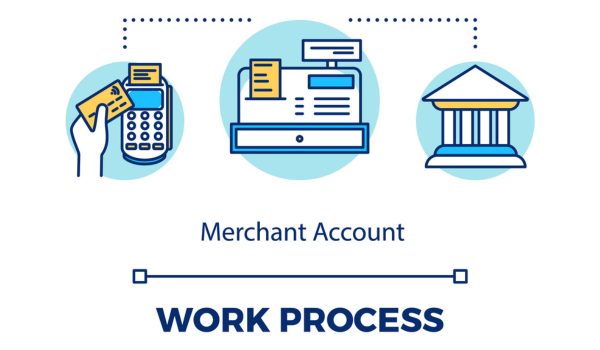
Merchant Services For CRM
Merchant services for CRM (Customer Relationship Management) are one of the payment processing services used for business users who accept credit/ debit card payments within their CRM software. It is used to manage the customer’s data and payment processing in one place. By using merchant services for CRM, businesses can easily streamline their payment processing and reduce the time and effort needed for the workflow.
Importance of Merchant Services for CRM
There are so many reasons why merchant services for CRM are more important to businesses. Merchant services are integrated with CRM that provide various functions to business users to manage their payment and secure the customer’s data more effectively. It also provides a fraud prevention tool that can be used to detect and prevent fraudulent activities during payment processing. The integration of CRM with merchant services helps to manage customer data which includes payment history, transaction data, and customer contact information. It leads to improving customer relationships and increases business revenue.
What is CRM and How It’s Works-CRM (Customer Relationship Management)
CRM is data-driven software that can help to store, track and manage the customer’s personal information. This information is stored in a business centralized system so that the business team can access the customer’s information whenever they need it. In simple words, it is a technology for managing all your company’s relationships and interactions with customers.
Implementation of CRM
The implementation of CRM means introducing the CRM system to your business for multiple processes. The implementation of CRM depends on business needs and specific software that is used for business. There are several steps involved while implementing CRM:
- Identification of Goals and Requirements: The first step of implementing the CRM is to find the needs and requirements of your business based on workflow, what type of data needs to be captured and stored, what type of software needs to be installed, etc. It defines the business goals and requirements of the software.
- Selection of CRM system: Once you find the goals and requirements of your business needs, you can select your CRM system that should fulfill your needs. While choosing the CRM, you should consider the features like pricing, software capability, efficiency, and so on.
- Implementation plan: To develop a detailed plan for implementing CRM, we should consider the timeline, resource allocation, and milestones. For the implementation process, we need a focused project team that includes a qualified project manager to oversee the CRM implementation.
- CRM Configuration: While configuring the CRM, it should meet your business requirements which include customizing fields, workflows, and reports.
- Data migration: Data migration from the existing system to the new CRM system, should have complete and accurate data.
- Train team members to use CRM: When CRM is ready to use, proper training should be given to the team members. A company providing onboarding sessions and training to the employees to use the CRM system is essential.
- Regular reviews and making improvements: Regular reviews of the CRM system can help to analyze user feedback, system performance, and user surveys. As a result of the reviews, you can make improvements to the CRM system to continue to meet their needs.
How CRM Works
CRM (Customer Relationship Management), is a comprehensive business strategy that focuses on managing and nurturing customer interactions and data throughout their entire lifecycle. It aims to enhance customer satisfaction, build long-term relationships, and drive business growth. The CRM process involves various interconnected steps and processes that work together to achieve these goals. Let's delve deeper into how CRM works and the key processes involved:
- Data Collection: The first process of CRM is to collect customer data like contact information, demographic details, and purchase history of customers.
- Data analysis: After collecting the customer’s data, it needs to be analyzed to gain the insights into customer’s behaviour and preferences.
- Customer Segmentation: Based on customers’ needs, preferences, and behavior, businesses can segment their customers into different groups.
- Customer Services: CRM system is also used to manage customer service interaction, get feedback, and complaints from the customers, tracking the customer’s inquiries that may lead to improved responsiveness and provide better service.
- Reporting and Analysis: CRM systems also provide reporting and analytic tools to track the business's performance and identify the improvement area.
Role of Merchant Services for CRM
Merchant services play a vital role in CRM to enable payment processing in businesses. The role of merchant services for CRM is used to improve the customer’s services and experiences. It provides the ability to track the customer’s interaction and purchase history. While integrating merchant services with CRM software, businesses can gain more profit and improve customer retention. Will see some key roles that are played by merchant services for CRM.
- Payment processing: While integrating the payment processing software with CRM software, businesses can streamline the payment processing workflow, and also manual data entry has been reduced. This allows us to accept payments from customers quickly and easily with safeguard transactions.
- Invoice Automation: Merchant services can do invoice automation by integrating with CRM software. Through the invoice automation process, businesses can save time and errors can be reduced. This allows to create and manage the invoice details directly from the CRM system and it also tracks the payment details and sends reminders for the overdue payment.
- Customer experience improvement: It provides a self-service portal for customers to view their invoices and payment history. It may result in a more personalized experience for their customers.
- Better financial management: Merchant services are used to generate analytics and reports within the CRM system. It helps businesses to improve their financial performance. It includes tracking payment processing, data invoicing, and subscription billing data.
- Reduced the risk of fraud: Merchant services also provide fraud prevention tools to minimize the risk of fraudulent transactions. It also has a fraud monitoring and automated fraud detection tool to avoid fraudulent activities before it occurs.
Key Benefits of Merchant Services for CRM
While the CRM system is integrated with merchant services, it provides numerous benefits for business users. Some of the benefits are:
- Payment processing improvements: Merchant service providers and CRM are two different things. While CRM integration with merchant services will provide more secure, reliable, and efficient payment processing for their users. It allows businesses to accept various modes of payment. It leads to improving customer satisfaction and loyalty.
- Increased efficiency: One of the advantages of CRM with merchant services will increase the efficiency of businesses. When CRM uses various automated tools, it reduces manual work and saves time.
- Customer data enhancement: Merchant services are used to collect more comprehensive information about customers such as demographic details, purchase history, transaction history, etc. These details provide valuable insights into the customer's behaviors and needs. So they can serve based on their customer's preferences.
- Better customer experience: Merchant services also provide full-time customer support services and online chat support. It improves the customer experience and helps to resolve the customer’s query quickly and easily.
- Better streamline operation: Merchant services can automate manual processes such as invoice generation, payment tracking, and reconciliation. It can save time and resources. It makes businesses focus on more strategic activities.
- Business growth: When merchant services provide various facilities to their customers, it improves the customer's loyalty and also increases the number of customers. Automatically it leads to improving business growth and profit.
Conclusion
Merchant services for CRM systems provide so many benefits by offering improved payment processing options, streamlined operation, and better customer support. This can lead to higher sales growth and more business profit. The integration of merchant services with CRM can be a smart investment for business users to take their business to the next level and it builds a stronger relationship with their customers and improves business efficiency.







